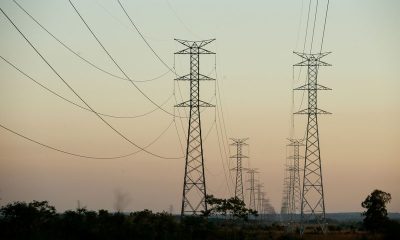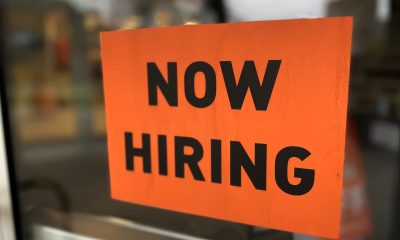Save Money
The News Is (Probably) Costing You Money

Once upon a time, the nightly news was the one thing a frugal person could watch on TV and not be assaulted by consumerism. (As long as you tuned out the ad breaks.) The show was simply an anchor at a desk reporting on the events of the day. If money was mentioned at all, it was a quick stock market update, or perhaps a note about global economic conditions. If you wanted financial news, you had to navigate to the financial news channels or subscribe to the Wall Street Journal. (And even if you went to those outlets, the stories were about global economic events and market news, not shopping.) Now, not so much. Now the nightly news is full of things disguised as “news,” but which are really entreaties to spend.
Here are some examples of what I see daily on the local/national news that’s probably costing me/you money:
- My local news has a segment called “What’s Trending.” This is usually some new gadget, movie, event, subscription, or other thing that I must buy in order to be “with it.” That’s just what’s on the live newscast, though. If you visit the station’s website, there are even more stories about “stuff.” (And that’s before you get to the click-bait product ads that masquerade as news.)
- We also have a Smart Shopper. While her advice is generally helpful for scouting deals at supermarkets, venues/events, etc., she can also lead you to spend on those great deals. If you need the items, great. But if you weren’t planning to buy and only reacted to the story, you’re spending unnecessarily.
- Stories about shortages lead to spending. By now you’ve heard the stories about the shortage du jour. Baby formula, feminine hygiene products, toilet paper, electronics, etc. have all experienced shortages over the past couple of years. The resulting news stories lead to spending and hoarding. How many people would have filled their garages with TP without the reporters yapping on about it?
- Stories about new gadgets disguised as news. I don’t know when new releases of cell phones, smart doorbells, VR headsets, and the like became news stories. Product releases have become big news and they are nothing but enticements to spend.
- Black Friday, a day about nothing but shopping, is a news event unto itself. Reporters are out in the field showcasing the annual consumerism orgy and encouraging you to participate. On Cyber Monday, they show you the top deals on Amazon and talk up the whole experience. The same also applies on Small Business Saturday, when the reporters head to the local businesses to encourage you to shop.
- At the time of this writing, CNN has a website section called “Shopping Recommendations” which is nothing but an inducement to shop. “32 Items That Will Make You Happy in 2023,” and “We Found All the Best New Year’s Sales to Start 2023 Off Right,” are the top two stories on that “news” page. And, no, there’s nothing there about this being a promotion or ad. It’s just “news.”
- Now that Covid lockdowns are over, there are tons of stories about going out to support local businesses and restaurants. I fully understand that they need the help. However, much of it reads as an excuse to spend like a drunken sailor in the service of supporting the home team. The same happens after natural disasters here, too.
- News stations now sponsor expensive events. Our local news sponsors some pricey events all year long, but especially during the holiday season. There’s a light show, a New Year’s street party, and a summer music festival all sponsored by the TV station. What do the news broadcasters hype during every newscast? You guessed it: These events. It would be one thing if these were ads during the broadcast, but it’s the anchors at the desk “reporting” on the fact that tickets are on sale.
- And don’t forget the projects of the anchors, themselves. News anchors write books and release music albums that all get promoted on the newscast. Our news station had a musician for a while and every time he put out a new album or concert series it was promoted, not as an ad, but as part of the broadcast.
These are just a few examples. I could list plenty more, but you get the picture. Enticing you to spend is rapidly becoming a major portion of the news. News broadcasts and websites are no longer safe havens from consumerism. I suppose that’s to be expected in a capitalist society, but it’s still disappointing. Frankly, it feels a little… I don’t know… Dirty. Not to mention exhausting. It’s exhausting being sold to at every single turn. We live in a world where companies/markets need us to spend money in order to increase profits and drive continuous growth. I suspect that’s why product releases, once the stuff of dusty press releases that no one ever paid attention to, are now news.
Perhaps you’re made of strong stuff and can resist all this shopping news. Great. But there are many people who, consciously or not, are influenced by this non-stop talk of deals and products and “shopping as sport/social activity.” They see a story about supporting a local business and run out to do so, even if they don’t have the resources. A story about a great deal on event tickets sends some to the ticket booth because the FOMO is strong. There are plenty of people in the world who don’t need or want this temptation to spend. Especially not from something that, ideally, should have nothing to do with consumerism. A daily news habit is probably costing you money in some form, even if you don’t realize it.
Perhaps I’m just old, but I always thought the news should be above this sort of promotion. Just recite the facts of the day’s events and be done with it. (Of course, I also thought that news should be unbiased and we all know how that’s turned out.) My point with this little rant is that if you’re trying to save money, the daily news is no longer safe viewing. It needs to join the banned list along with newsletters, catalogs, website advertising and the rest of commercial TV. (News websites aren’t much better, but at least you can try to avoid the worst of it by not clicking on the “stories.” If you’re disciplined and stay conscious of what you’re reading, you can still stay somewhat informed and be less tempted.)
Read More:
- How to Unplug from Consumerism
- How Trashing My TV Resulted in $16,000 a Year
- How the Financial News Is Costing You Money
- Financial Ignorance is (Sometimes) Bliss
Read the full article here

-

 Make Money5 days ago
Make Money5 days agoHow to Create and Sell Digital Products Online (Make Extra Money)
-

 Investing6 days ago
Investing6 days agoIs Apple Releasing an ‘Ultra-Thin’ iPhone 17 Air? New Report
-

 Side Hustles7 days ago
Side Hustles7 days agoCreate Your Wealthy, Purposeful Life: Business Expert’s Tips
-

 Investing6 days ago
Investing6 days agoUS data center electricity and water use to increase significantly by 2028: report By Investing.com
-

 Investing5 days ago
Investing5 days agoMoldova breakaway region to face new power cuts on Saturday, officials say By Reuters
-

 Investing5 days ago
Investing5 days agoReebok Co-Founder Backs Syntilay’s New AI, 3D-Printed Shoe
-

 Side Hustles5 days ago
Side Hustles5 days agoHow to Survive High-Demand Seasons Without Losing Customers
-

 Side Hustles7 days ago
Side Hustles7 days agoMinimum Wage Is Increasing In These 21 States This Year


















